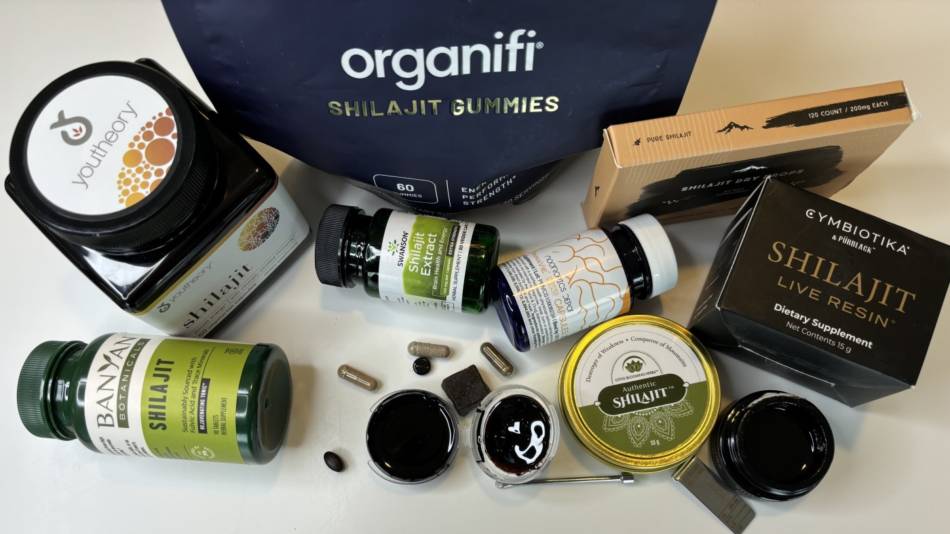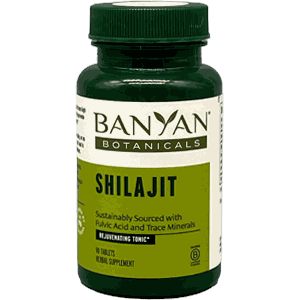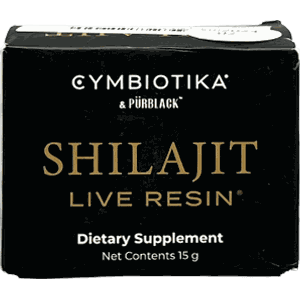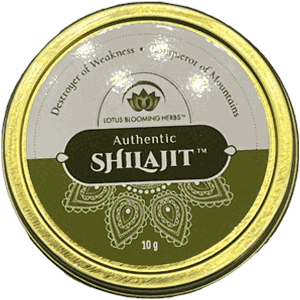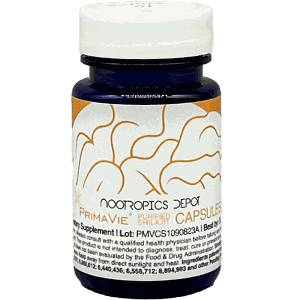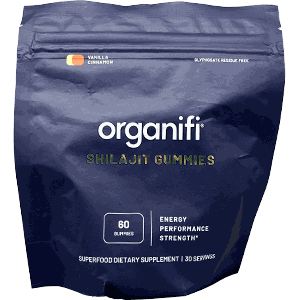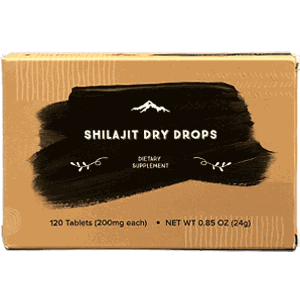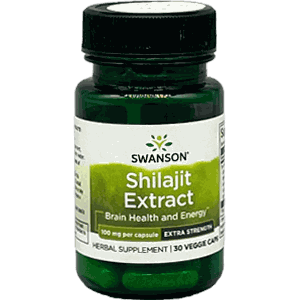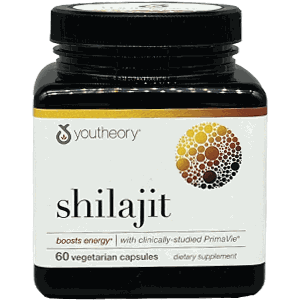Summary
-
What is shilajit?
Shilajit is a resinous, black-brown, sticky tar-like substance produced from the decomposition of plant material and found in mountain rocks. Shilajit supplements are typically made of shilajit that has undergone various amounts of purification. While the exact composition will vary depending on the region from which it is sourced, purified resins are about 6% to 7% fulvic acid, while extracts are approximately 60% to 80% fulvic acid. Although sometimes promoted for its mineral content, shilajit provides clinically insignificant amounts of essential minerals (see What It Is).
-
What does shilajit do?
Shilajit is commonly used in Ayurvedic medicine for "longevity" and "rejuvenation," and shilajit supplements have been promoted for a wide range of uses, including boosting testosterone levels and improving fertility in men, improving digestive and skin disorders, anxiety, bronchitis, epilepsy, preventing Alzheimer's disease, lowering cholesterol or blood sugar, and boosting blood levels of CoQ10 or minerals. However, as discussed in this Review, there is very little clinical evidence to support these uses (see What It Does).
-
Are there concerns with the quality of shilajit?
Some shilajit supplements have been found to exceed contamination limits for lead, a toxic heavy metal. Raw shilajit may also have microbial contamination. In addition, it is difficult to know the strength (in terms of fulvic acid level) of most products from labels (see Quality Concerns and Tests Performed).
-
Which is the best shilajit supplement?
We purchased and tested the quality of 8 popular shilajit supplements. One could not be Approved, as the amount of fulvic acid found was unusually high and not consistent with its label. Heavy metals (lead, arsenic, cadmium, and mercury) were generally quite low, although some products would exceed strict limits on lead if taken more than once per day. Amounts of fulvic acid per serving ranged by nearly 32,000% -- from just 6.9 mg to 2,206 mg — indicating major differences among products. In addition, the cost to get an equivalent amount of fulvic acid (100 mg) from products ranged by 8,600% from just 10 cents to $8.69, suggesting better value with certain products over others.
Among products that were Approved for their quality, we selected one as our Top Pick for shilajit overall, as it contains a significant amount of fulvic acid from a form of shilajit commonly used in clinical studies, was particularly low in heavy metals, was less expensive than comparable products, and was formulated to be much more palatable that other shilajit formulations.
-
Is shilajit safe to take?
Purified shilajit resin and shilajit extracts appear to be well tolerated in most adults, but studies have been small and preliminary; larger, well-controlled studies are needed to confirm the safety of shilajit, particularly the safety of long-term use. Be aware that shilajit has an unpleasant, smoky, tar-like flavor and is more palatable if taken in a capsule or coated tablet. Shilajit has the potential to lower blood sugar, and so it should be used with caution in people with low blood sugar levels or those who take blood-sugar lowering medications (see Concerns and Cautions).
+— 15 sources
In addition the results of its expert testing, ConsumerLab uses only high-quality, evidence based, information sources. These sources include peer-reviewed studies and information from agencies such as the FDA and USDA, and the National Academy of Medicine. On evolving topics, studies from pre-print journals may be sourced. All of our content is reviewed by medical doctors and doctoral-level experts in pharmacology, toxicology, and chemistry. We continually update and medically review our information to keep our content trustworthy, accurate, and reliable. The following sources are referenced in this article:
- Stohs, Phytother Res 2014
- Pandit, Andrologia 2016
- Biswas, Andrologia 2010
- Sharma, Anc Sci Life 2003
- Das, J Med Food 2016
- Neltner, J Diet Suppl 2024
- Pingali, Phytomedicine 2022
- Andrade, Pharmaceuticals 2023
- Saper, JAMA 2004
- CDC 2015
- Kamgar, BMC Chem 2025
- Meena, Int J Ayurveda Res 2010
- US Patent 6,869,612 B2, 2005
- Agrawal, Curr Med Res Pract 2016
- Cialis Prescribing Information, 2023
You must
be a member to get the full test results along with ConsumerLab.com recommendations and quality ratings. You will get results for 8 shilajit supplements, including liquids, tablets, capsules, and gummies, selected for testing by ConsumerLab.com.
In this comprehensive review, you'll discover:
 Which shiltajit supplements failed our tests and which ones passed
Which shiltajit supplements failed our tests and which ones passed CL's Top Picks among products as the best shilajit supplements based on quality, taste, and value
CL's Top Picks among products as the best shilajit supplements based on quality, taste, and value If clinical research supports the use of shilajit for "longevity," improving digestive and skin disorders, reducing anxiety, preventing Alzheimer's disease, boosting testosterone or fertility
If clinical research supports the use of shilajit for "longevity," improving digestive and skin disorders, reducing anxiety, preventing Alzheimer's disease, boosting testosterone or fertility Whether shilajit supplements are a good source of essential minerals such as calcium, magnesium, and potassium
Whether shilajit supplements are a good source of essential minerals such as calcium, magnesium, and potassium
 If shilajit products are contaminated with heavy metals such as lead, cadmium, arsenic and mercury
If shilajit products are contaminated with heavy metals such as lead, cadmium, arsenic and mercury What to look for on shilajit product labels
What to look for on shilajit product labels Safety and other potential concerns with shilajit
Safety and other potential concerns with shilajit
As a ConsumerLab.com member, you may print a copy of this report for your personal use.
You can access a special print version by clicking the "Print" icon in the upper right corner of this report.
You can then use your web browser's print functions to print the whole report or just selected pages.
You may also email or post a link to this report using the web address above.
Non-members using the link will see a free summary and can join to view the full report.
Other means of copying or distributing this report, in part or full, are not permitted.
If you are sight-impaired and your computer is having trouble converting the text in this report to speech,
contact us for assistance at Membership@ConsumerLab.com or by
phone at 914-722-9149.

